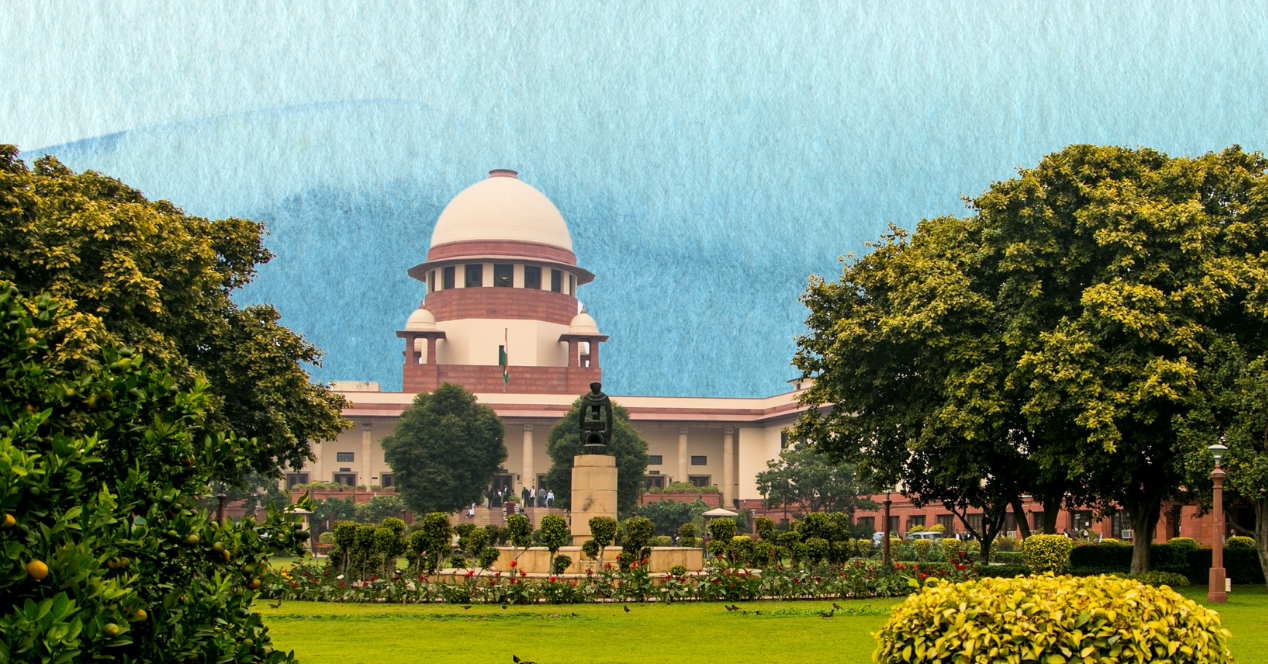Analysis
Restricted Information: Six significant judgements from the last decade
Backdoor legislative tweaks, sluggish e-portals, mixed messaging from courts—India’s once-vaunted RTI framework is losing its bite.

Last month, with the enactment of the Digital Personal Data Protection Act, concerns emerged about its implications on India’s Right to Information framework—it was argued that the law creates a backdoor mechanism for governmental agencies to prevent release of information on the grounds that it is “personal information.” This runs counter to established RTI jurisprudence which has prioritised transparency when it comes to executive accountability.
More broadly, journalists and RTI activists across the country have been expressing concerns about the weakening RTI framework. In the last week of August, RTI activists reported missing records from their accounts on the RTI Online portal. A few days ago, data prior to 2022 was restored for some users with a clarification that the site was under maintenance.
Yet, for many “guest” users, years of RTI information still remained inaccessible at the time of writing on 4 September 2023. “Despite many attempts, I am simply unable to log in to the system as it keeps returning that the password is incorrect,” said Venkatesh Nayak, Director of the India office of the Commonwealth Human Rights Initiative.
Aroon Deep, who broke the story of the disappearance of data from RTI Online accounts, shared that while lost data has been restored to The Hindu’s two RTI Online accounts, “the portal remains unusably slow.” Aroon Deep said that an RTI activist he spoke to, Chandra Shekhar Gaur from Madhya Pradesh, was unable to reset his password and “lost all his data since the [glitch last week], not just pre-2022.”
The ambitions of the RTI Act, which was once seen as a laudatory legislation for upholding citizens’ right to transparency, have continued to slide. As experts document the threats to RTI by executive overreach, it seems like an opportune moment to look at what the higher courts have said over the last decade.
There have been several notable decisions recognising RTI as a fundamental instrument to demand accountability from the executive. Yet, look closer, and a judgement like Girish Ramchandra Desphande, while batting for transparency, has deepened the discretionary powers of public authorities to withhold information. In Rajeev Suri, the majority opinion upheld notifications about the change in land use for the Central Vista project, despite there being no public consultation.
Girish Ramchandra Deshpande v. Central Information Commission and Ors (Supreme Court, 2013)
The case was about whether information related to property, assets and liabilities of a public servant could be protected from RTI queries. The court noted that typically, income tax returns fell under “personal information” under Section 8(1)(j) of the RTI Act. However, if the authority is convinced that a larger public interest is involved, then that information must be given out.
The judgement, while broadly celebrated, has remained a cause of worry for experts. It’s been noted that the strong discretionary power handed to Public Information Officers and Appellate Authorities to decide what kind of information could be considered as “public interest” has resulted in the denial of legitimate requests. As a result of this precedent, requests for information relating to MLA Fund expenditure, caste certificates, educational degrees and file notings, have been denied.
T.S.R. Subramaniam v Union of India and Ors. (Supreme Court, 2013)
The Court was deciding whether civil servants could work under mere oral directions passed by senior administration or the political executive, or whether only written instructions were valid. The Court noted that Sections 3 and 4 of the RTI Act emphasised transparency, and that written directions act as records of transparency. It held that recording of information was necessary to ensure accountability in the functioning of civil servants.
Nazrul Islam v State of West Bengal and Ors. (Calcutta HC, 2016)
Justice Arijit Banerjee noted that the RTI Act imposed an obligation on public authorities to maintain records in an organised manner to facilitate the right to information. He ordered the West Bengal Home Department to pay compensation of Rs 50,000 to an RTI petitioner for failing to supply information despite multiple appeals. The state government was directed to pay another Rs 20,000 to the petitioner for unnecessary harassment.
Public Information Officer, Chief Minister’s Office, Civil Secretariat Govt. of U.P. v State Information Commission and Ors. (Allahabad HC, 2018)
The Lucknow Bench of the Allahabad High Court was concerned with the question of whether it was possible to obtain information about the recipients of discretionary funds from the Chief Minister’s office. The judges answered in the affirmative, noting that transparency was vital to hold governments and their instrumentalities accountable, especially in situations involving public expenditure.
Rajeev Suri v Delhi Development Authority and Ors. (Supreme Court, 2021)
The hearings were about the permissibility of the Central Vista project. A segment of the discussion was about public disclosure of detailed information about the project. In March 2020, the central government had unilaterally notified that vast swathes of the Raisina Hill would be converted from recreational and public use to government use. This was done without any public consultation. In his dissenting opinion, holding in favour of setting aside the notification, Justice Sanjiv Khanna stressed on the public’s right to know and participate in public deliberations. The majority opinion, delivered by Justice A.M. Khanwilkar, however, found no deprivation of the public’s right. Commentators noted that the majority judgement harmed the jurisprudence on public participation.
Bhim Rao Baswanth Rao Patil v K. Madan Mohan Rao & Ors (Supreme Court, 2023)
Justices S. Ravindra Bhat and Aravind Kumar stated that the voter’s right to obtain information about a candidate’s background was crucial. The Bench discussed the ambit of Section 33A of the Representation of the People Act, which requires candidates to reveal extraneous information under the RTI Act and their criminal antecedents, if any. The Court noted that this was to enable transparency and aid voters in making informed choices.




